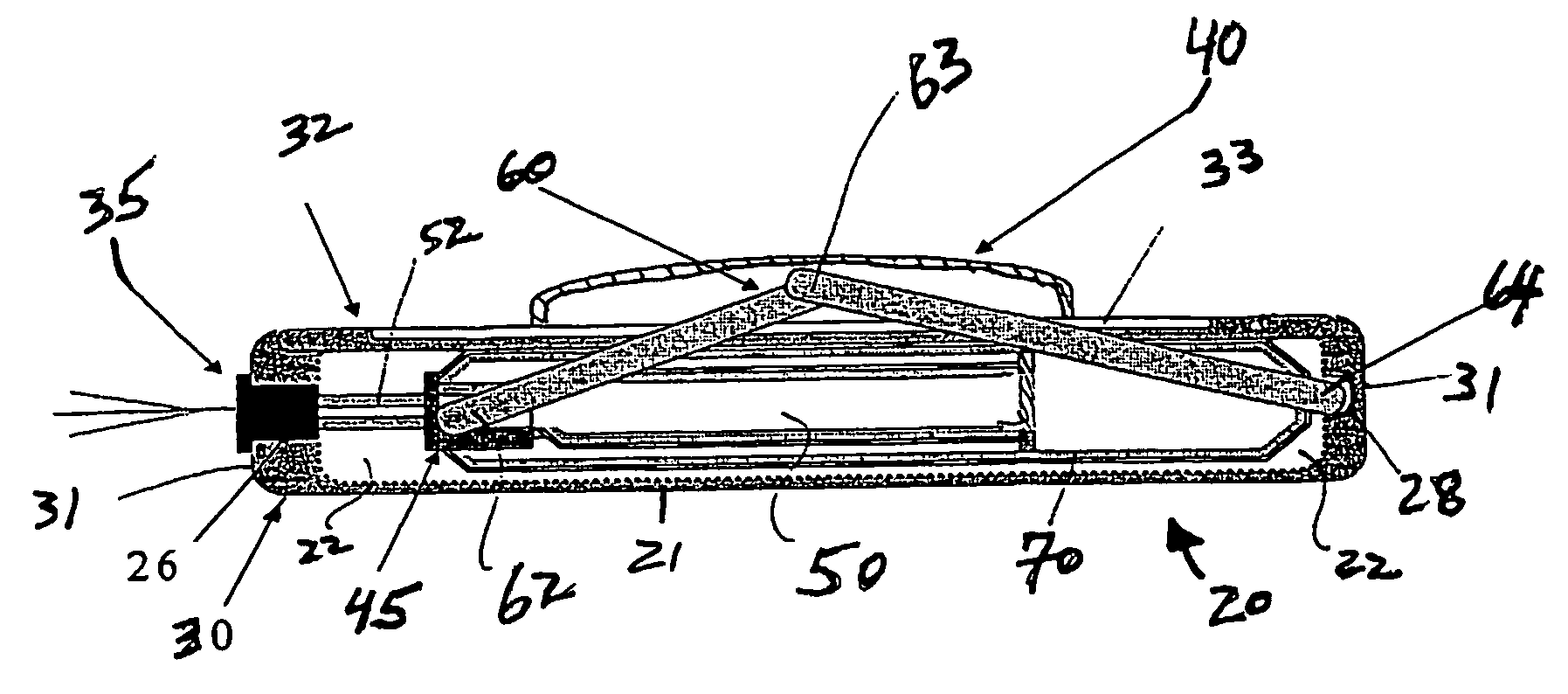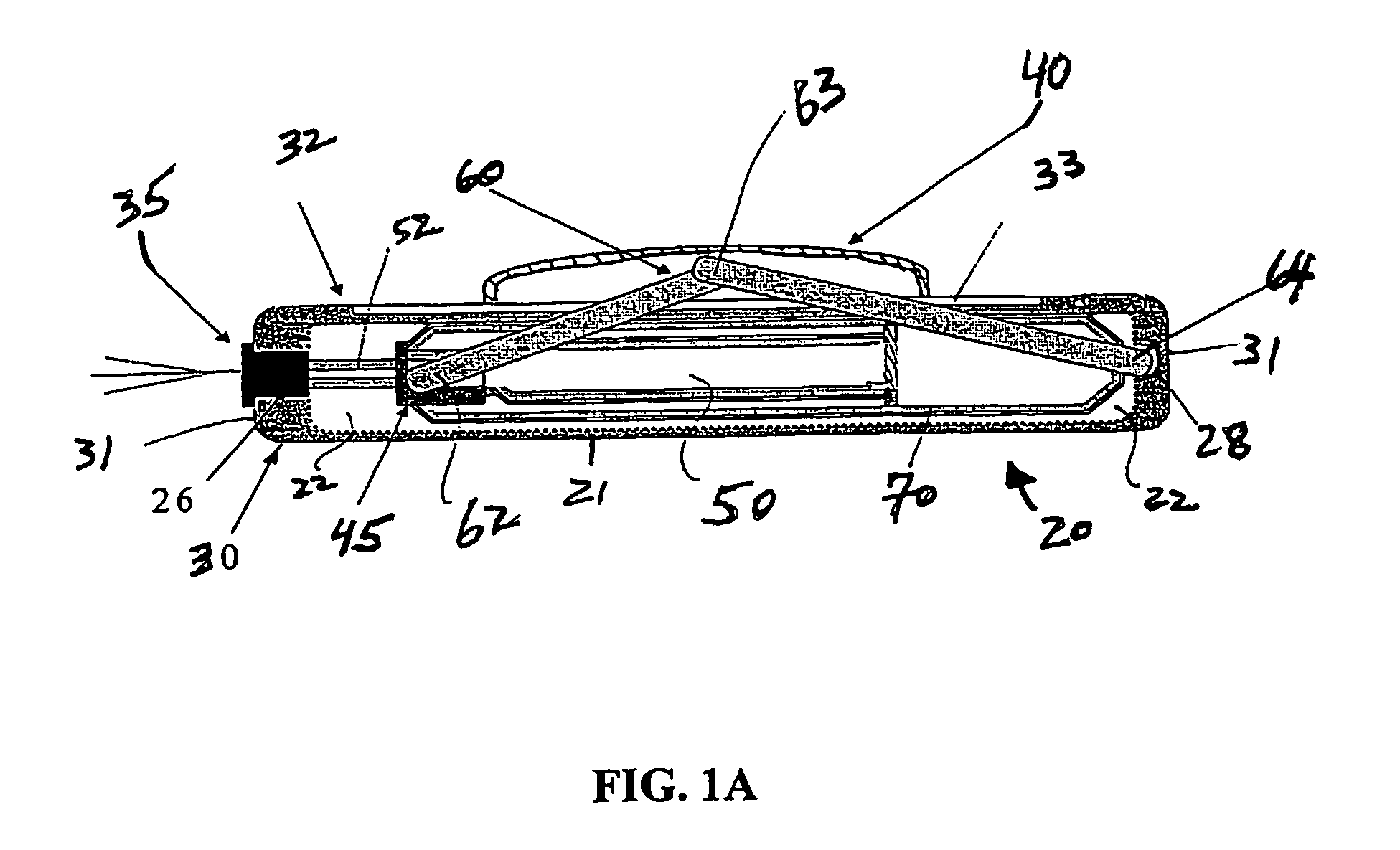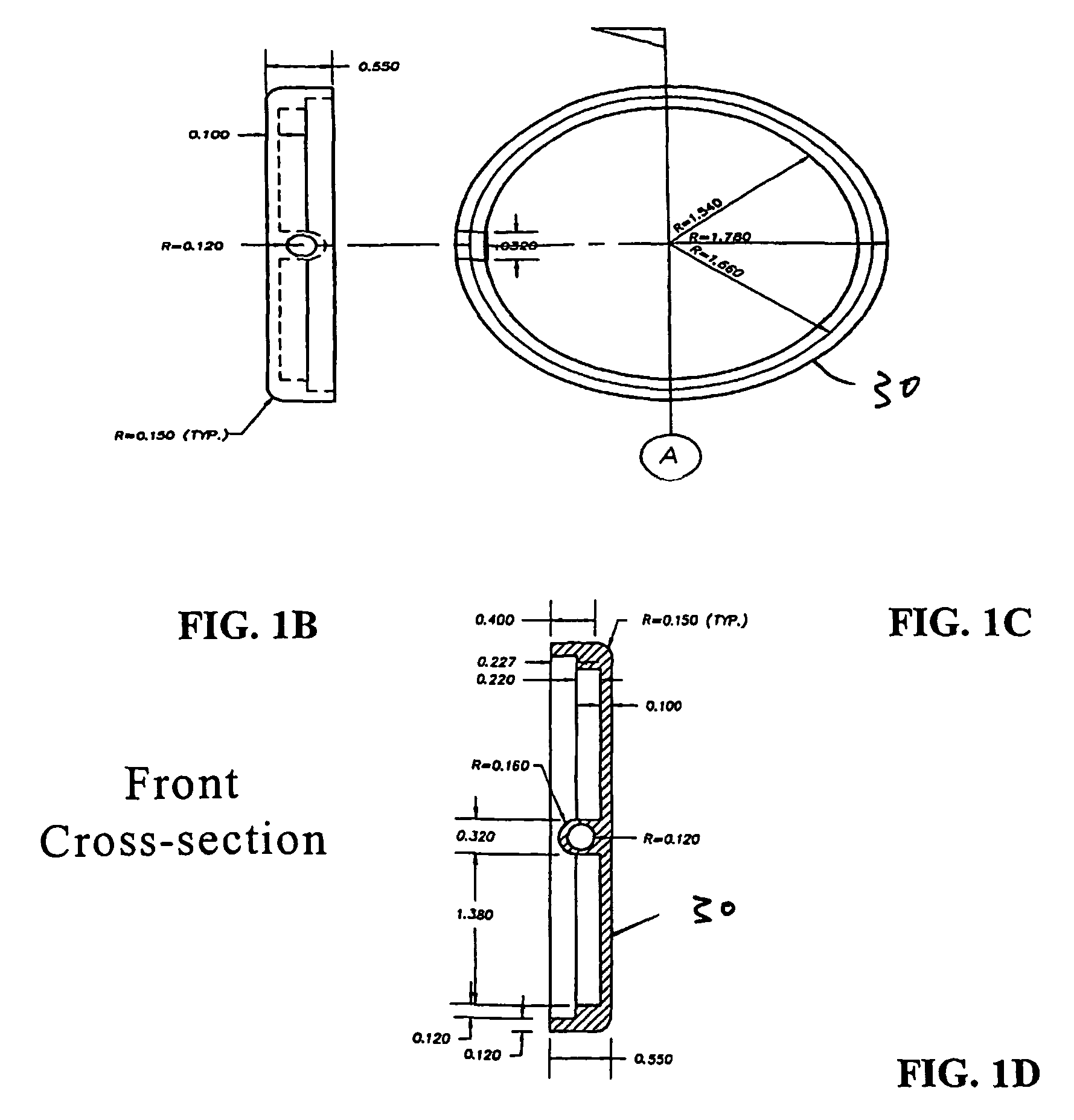Portable dispensing systems
a portable, self-contained technology, applied in the direction of instruments, liquid transfer devices, single-unit apparatuses, etc., can solve the problem of limited product range that the new system can store and dispense, and achieve the effect of being convenient and disposabl
- Summary
- Abstract
- Description
- Claims
- Application Information
AI Technical Summary
Benefits of technology
Problems solved by technology
Method used
Image
Examples
second embodiment
[0068]FIG. 15A shows an alternative embodiment of the portable dispensing device. FIG. 15B shows an “exploded” view of this device. This second embodiment of the device includes a housing 100 with a base 102, and a lid 104. Dispensing button 106 is inserted into housing 100 and protrudes through lid 104. Button 106 has a flange 107 that prevents it from being pulled out of the device through opening 105 in lid 104.
[0069]Reservoir 108 fits inside housing 100 and is connected, e.g., by a pressure fit, to pump mount 110. Pump 50 fits securely in pump mount 110, and is inserted into reservoir 108. Reservoir neck 109 is press fit or threaded into opening 111 in pump mount 110, thereby sealing pump 50 inside reservoir 108.
[0070]FIG. 16 shows a top view of this device. FIG. 17 is a side cross-sectional view of the device along section line A-A in FIG. 16. When pump 50 is moved forwards (to the right in FIG. 17), nozzle 52 is pressed into the pump, thereby drawing liquid from reservoir 108 ...
first embodiment
[0072]When dispensing button 106 is pushed downward, the two angled faces 122 are pressed against the two wedges 112 on either side of pump mount 110. This pressure, in turn, forces the wedges, and thus the pump mount, pump, and reservoir, to move horizontally (laterally) forwards (right in FIG. 18B). This causes nozzle 52 of pump 50 to be pressed into the pump causing it to expel liquid drawn from reservoir 108. In other respects, this device is similar to the first embodiment described herein.
[0073]Thus, in all embodiments, a force in a first direction (e.g., downwards) is applied to a surface of the device, or a dispensing button, which contacts an actuator mechanism that translates the force into a second direction (e.g., horizontally or laterally), which is approximately (or exactly) at 90° to the first direction. The force in the second direction moves an internal pump towards a wall of the device, causing a nozzle of the pump to be pushed into the pump to dispense liquid cont...
PUM
 Login to View More
Login to View More Abstract
Description
Claims
Application Information
 Login to View More
Login to View More - R&D
- Intellectual Property
- Life Sciences
- Materials
- Tech Scout
- Unparalleled Data Quality
- Higher Quality Content
- 60% Fewer Hallucinations
Browse by: Latest US Patents, China's latest patents, Technical Efficacy Thesaurus, Application Domain, Technology Topic, Popular Technical Reports.
© 2025 PatSnap. All rights reserved.Legal|Privacy policy|Modern Slavery Act Transparency Statement|Sitemap|About US| Contact US: help@patsnap.com



